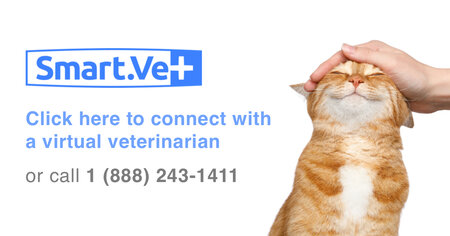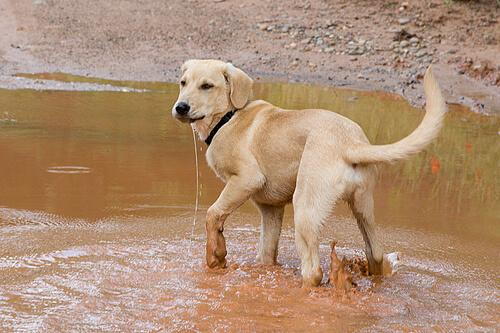Important Notice!


What is Leptospirosis?
Leptospirosis is a potentially deadly bacterial disease that infects all breeds of dogs, certain species of wildlife and humans. This disease-causing bacteria is spread through the urine of infected animals. Raccoons, skunks, squirrels, opossums, rats and even livestock can be carriers of the disease. Soil and water contaminated with the bacteria can continue to be a source of infection for weeks or even months after exposure to infected urine.
Is my dog at risk?
Any dog coming in contact with contaminated water or soil is at risk, even pets that don’t leave their own yard. Common garden attractions such as bird baths and ornamental ponds attract a wide variety of wildlife and can be a source of infection. Leptospirosis is contracted when the bacteria enters the body through a cut or mucous membranes (eyes, nose or mouth). Infection can occur if your pet simply drinks or wades through infected water. Licking their paws after walking on contaminated soil can also be a means of infection.
What are the signs and symptoms?
In humans, the symptoms are often flu-like and usually treated with antibiotics. Fever, vomiting, diarrhea, loss of appetite and lethargy are common symptoms in dogs. Pets that contract the disease and are left untreated could develop potentially fatal kidney or liver failure. If you suspect your pet may be infected your veterinarian can perform urine and blood testing to determine if your dog has leptospirosis. An early diagnosis is important for a full recovery.
Can Leptospirosis be prevented?
Discouraging your pet from drinking potentially contaminated water and avoiding areas frequented by wildlife will help to limit possible exposure. Leptospirosis can also be prevented with a safe and affordable vaccination. Dogs that have never received a vaccination against leptospirosis will require a second vaccination or ‘booster’ 3-4 weeks after their initial dose. This will provide maximum protection. The vaccination can then be administered yearly with your pet’s annual wellness exam. This vaccine is part of our regular vaccination protocol, so you can be rest assured that your pet is receiving the best protection available.
173 Main St
West Lorne, ON, Canada
8:00 am - 6:00 pm
8:00 am - 5:00 pm
8:00 am - 5:00 pm
8:00 am - 5:00 pm
8:00 am - 5:00 pm
8:00 am - 2:00 pm
Closed